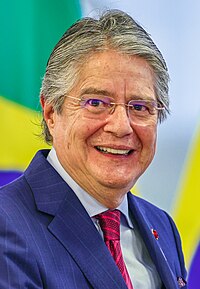
Photo from wikipedia
Abstract This paper explores the ideology and materiality of ‘bio-socialism’, through which the Ecuadorian government is attempting to catalyse a ‘post-neoliberal’ transition from the ‘finite resources’ of Amazonian oil reserves… Click to show full abstract
Abstract This paper explores the ideology and materiality of ‘bio-socialism’, through which the Ecuadorian government is attempting to catalyse a ‘post-neoliberal’ transition from the ‘finite resources’ of Amazonian oil reserves to the ‘infinite resources’ of biodiversity and scientific knowledge. This experiment is embodied in Ikiam, a public university under construction in the Ecuadorian Amazon. Drawing on extensive field research, we argue that, despite its radical intentions, bio-socialism is functioning as a strategy for the real subsumption of nature to capital, which is being operationalized in Ikiam in ways that reproduce the neoliberal knowledge economy. However, the contradictions of this process imply that, in practice, Ikiam is only intensifying established patterns of the formal subsumption of nature, by commodifying the genetic wealth and indigenous knowledge of the Amazon, and legitimating the expansion of the oil and mineral frontiers. The case of bio-socialism demonstrates the paradoxical nature of actually-existing post-neoliberalism, and illustrates the tendency for utopian ideologies to reproduce the material conditions they are seeking to escape.
Journal Title: Geoforum
Year Published: 2017
Link to full text (if available)
Share on Social Media: Sign Up to like & get
recommendations!